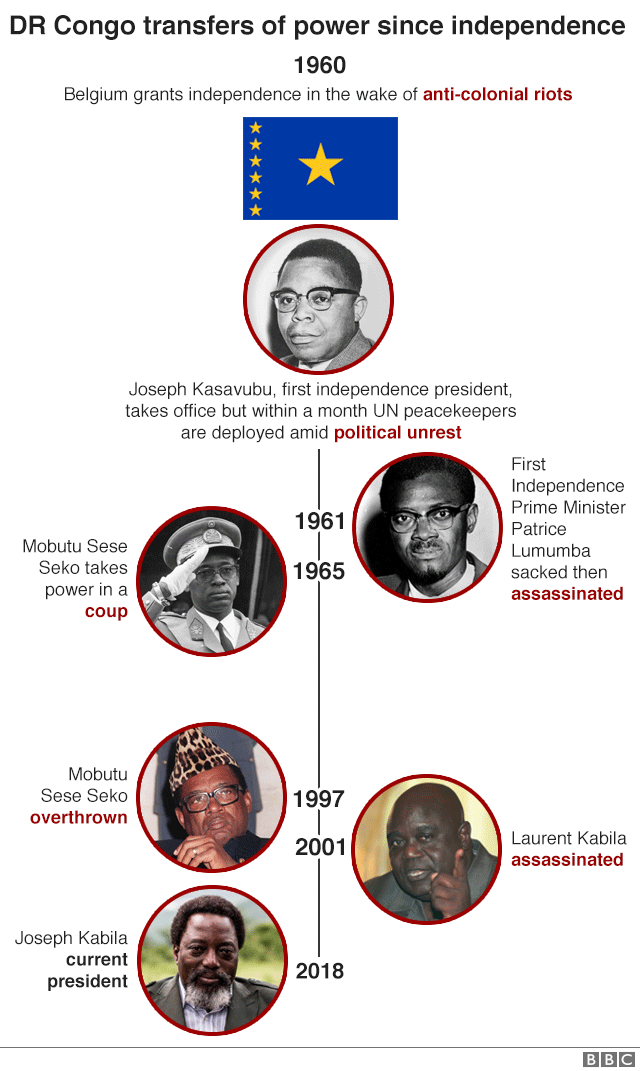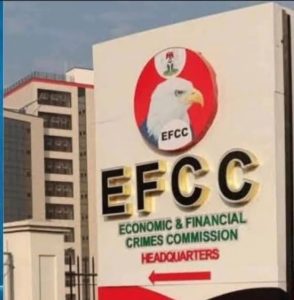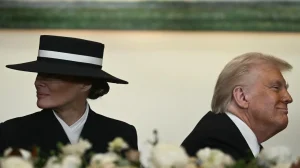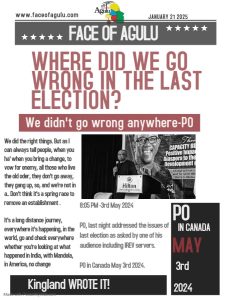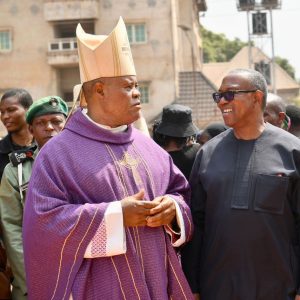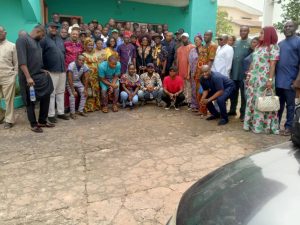Tshisekedi sworn in as DR Congo president
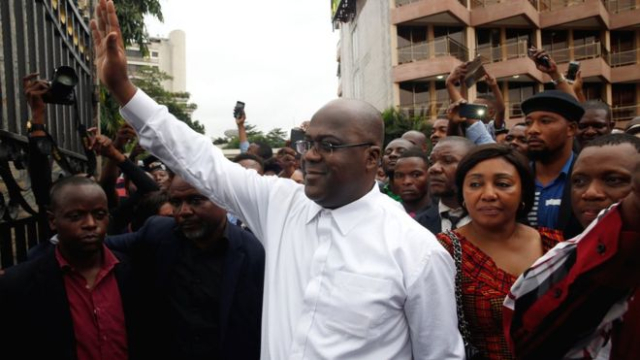
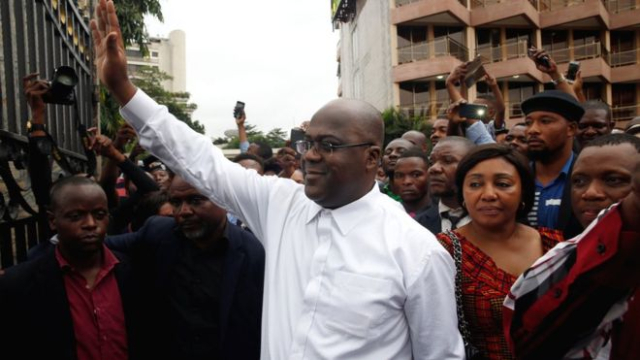 Félix Tshisekedi, pictured earlier this month, leads DR Congo’s largest opposition party which was founded by his late father in 1982
Félix Tshisekedi, pictured earlier this month, leads DR Congo’s largest opposition party which was founded by his late father in 1982
The new president of the Democratic Republic of Congo, Félix Tshisekedi, has been sworn into office.
Kenya’s President Uhuru Kenyatta was the only African head of state, out of 17 invited, to watch the ceremony at the presidential palace in Kinshasa.
President Tshisekedi is taking over from Joseph Kabila in the first peaceful transfer of power in the country in nearly 60 years.
But many still dispute his victory in last month’s presidential election
Numerous sources say his opponent Martin Faylulu won a landslide victory and has been denied office by a backroom deal between Mr Kabila and Mr Tshisekedi.
The influential Catholic Church, which deployed election observers on voting day, said the official data did not match its own numbers.
Mr Fayulu’s appeal to the Constitutional Court for a vote re-count was rejected, and critics say the body is too close to outgoing President Kabila and lacks independence.
Addressing the nation on Wednesday, Mr Kabila said he had no regrets and called on Congolese citizens to support his successor, who he said could call on him for advice at any time.
Yet many people there believe the handover demonstrates that DR Congo is becoming more democratic, the BBC’s Gaïus Kowene in Kinshasa reports.
The new president is mostly known for being the son of the late veteran opposition leader Etienne Tshisekedi, who was regarded as one of DR Congo’s most important pro-democracy advocates.
The UDPS party President Tshisekedi leads was founded in 1982 by his father, who turned it into the largest opposition party. But President Tshisekedi, 55, insists he is not trying to rival his father.
A presidency without power?
Analysis – Fergal Keane, BBC Africa editor
Félix Tshisekedi comes to the presidency with little weight of expectation from beyond his own support base.
What was supposed to be the first democratic transfer of power since independence in 1960 looks tainted with strong suspicions that the outgoing president, Joseph Kabila, intends to exert control from behind the scenes.
Mr Tshisekedi’s challenges are immense. His Union for Democracy and Social Progress (UDPS) party did poorly in the elections, so he lacks the firm parliamentary base which might give him the means to assert his independence as president.
The senior echelons of the army and police are all appointees of the old regime. Removing them would be a significant sign that the new president means to be independent.
But would he risk challenging Joseph Kabila? It is highly unlikely. Félix Tshisekedi may find he has been handed the responsibility of the presidency but with little of the power.
